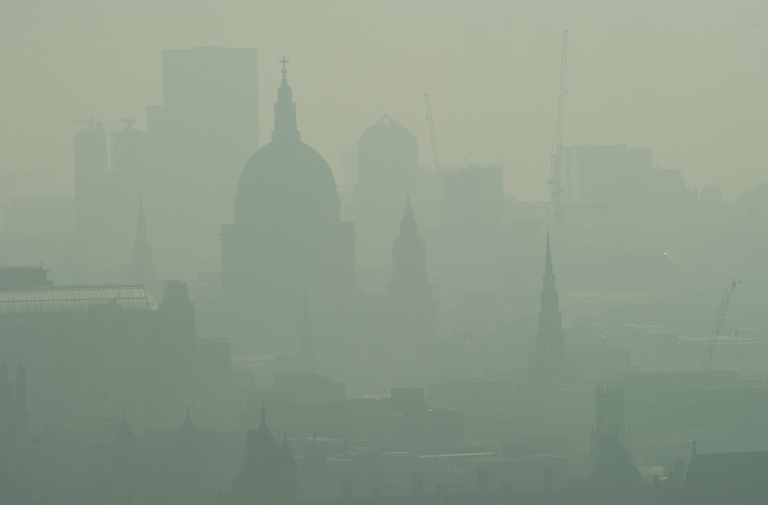
Sharon Lavigne, one of the six winners of the 2021 Goldman Environmental Prize, is fighting to protect her community from plastics corporations.
Hundreds of doctors, health professionals and medical students launched Doctors Against Diesel, a campaign calling for London mayor Sadiq Khan to phase out diesel vehicles in the city by 2025, on the 10th of December. The movement started shortly after the mayors of four major global cities – Paris, Mexico City, Madrid and Athens – announced they will stop using
Hundreds of doctors, health professionals and medical students launched Doctors Against Diesel, a campaign calling for London mayor Sadiq Khan to phase out diesel vehicles in the city by 2025, on the 10th of December. The movement started shortly after the mayors of four major global cities – Paris, Mexico City, Madrid and Athens – announced they will stop using diesel-fuelled cars and trucks by the middle of the next decade in order to improve air quality.
Originally promoted because it releases fewer CO2 emissions compared to petrol, the use of diesel has come under increased scrutiny over the past few years due to its negative impact on air quality and health. Diesel vehicles contribute to air pollution through the production of particulate matter (PM), which can penetrate the lungs and cause cardiovascular diseases and premature death. It also produces nitrogen oxides (NO2), responsible for respiratory problems.
According to the World Health Organisation (WHO), about 3 million people die every year due to ambient air pollution and, as of 2014, 92 per cent of the world’s population lives in places where air pollution exceeds WHO guidelines.
‘A complete policy failure’ Dr Gary Fuller in @washingtonpost on London’s ‘new smog’ @griffwitte https://t.co/iKeU6uNnzu @LondonAir pic.twitter.com/gEqjUDMQ4K
— King’s CollegeLondon (@KingsCollegeLon) December 21, 2016
Even though diesel vehicles aren’t single-handedly responsible for the city’s pollution, a recent report by the Institute for Public Policy Research (IPPR), Greenpeace and King’s College London reveals that they’re emitting 40 per cent of London’s total PM and NO2 emissions.
The campaign couldn’t be more topical, after air quality alerts were recently issued for the first time in some of London’s most polluted areas, including the highly popular Oxford Street and Marylebone Road. On this occasion Sadiq Khan, who made tackling air pollution a key priority during his election campaign, said: “Londoners need to know when the city is suffering from high pollution levels so they can take any necessary appropriate measures to protect themselves from poor air quality. This is particularly crucial for Londoners who are vulnerable, such as asthma sufferers.”
The London mayor has already outlined a series of proposals for tackling this mounting challenge and cleaning up the city’s air, including the expansion to the planned Ultra-Low Emission Zone in central London. This is an area where all cars, motorcycles, vans, minibuses, buses, coaches and heavy goods vehicles (HGVs) will need to meet exhaust emission standards or pay a daily charge to travel.
I’m taking bold action to clean up London’s air- funding over the next five years will be more than doubled to £875m https://t.co/No3HGOd7bZ
— Sadiq Khan (@SadiqKhan) December 11, 2016
Khan has been extremely active and vocal in tackling air pollution and has stressed that the central government must “get a grip” on this matter, backing London air pollution reduction plans and rolling them out nationwide, in order for them to work effectively.
Siamo anche su WhatsApp. Segui il canale ufficiale LifeGate per restare aggiornata, aggiornato sulle ultime notizie e sulle nostre attività.
![]()
Quest'opera è distribuita con Licenza Creative Commons Attribuzione - Non commerciale - Non opere derivate 4.0 Internazionale.
Sharon Lavigne, one of the six winners of the 2021 Goldman Environmental Prize, is fighting to protect her community from plastics corporations.
Plastic pollution is airborne too. Microplastics are being carried across continents by the wind, as a recent study reveals.
Levels of particulates in New Delhi in 2020 were once again far above safety thresholds, with extremely serious health consequences for its citizens.
A major oil spill in the Ecuadorian Amazon in April has left the Coca River polluted. The indigenous Kichwa are suing the companies whose pipelines broke.
Molecules that eat up plastic waste, including PET bottles, may soon become widely used as scientists leap ahead in developing new super enzymes.
In Italy’s Land of Fires between Naples and Caserta, activists like Carmen Medaglia are fighting to promote new ways of managing waste.
Toxic substances in Kamchatka’s waters have killed 95% of marine fauna and caused health problems for surfers. The causes, however, are still unknown.
A Magellanic penguin was found lifeless on a Brazilian beach: in its stomach, an N95 face mask. Researchers believe the animal died from ingesting it.
The drop in air pollution during worldwide lockdowns helped prevent thousands of premature deaths. But the situation is returning to pre-crisis levels.








